Saigon Traders Close Stalls to Avoid Inspections
On the morning of June 9th, Nguoi Lao Dong reporters observed that nearly half of the stalls at An Dong Market (Ward 5, Ho Chi Minh City) were closed, in contrast to the bustling atmosphere of previous days.
The atmosphere inside the market was tense. Merchants or their relatives stood guard in front of the closed stalls, warily eyeing strangers. Many displayed clear signs of apprehension.
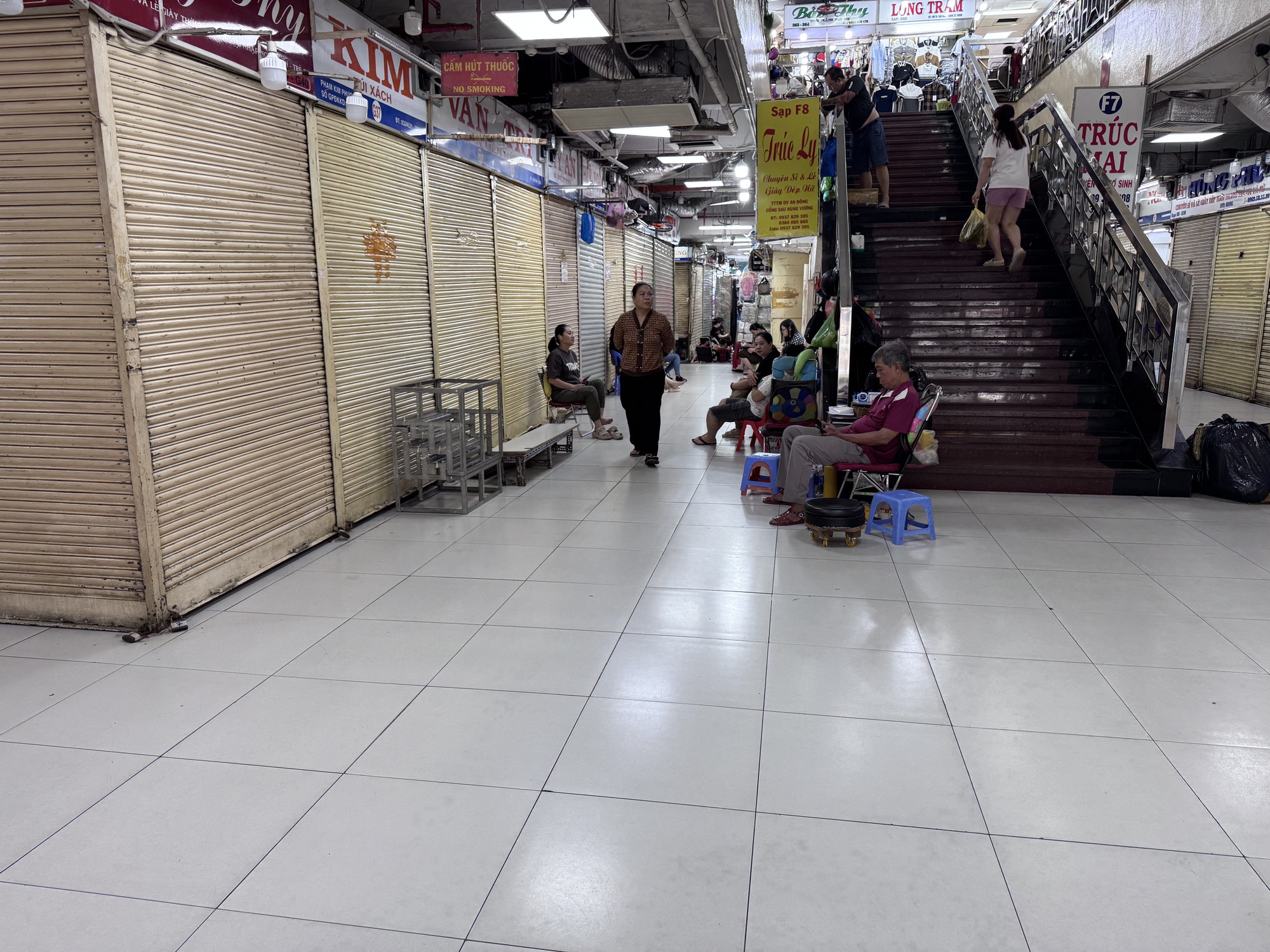
An Dong Market with closed doors and windows
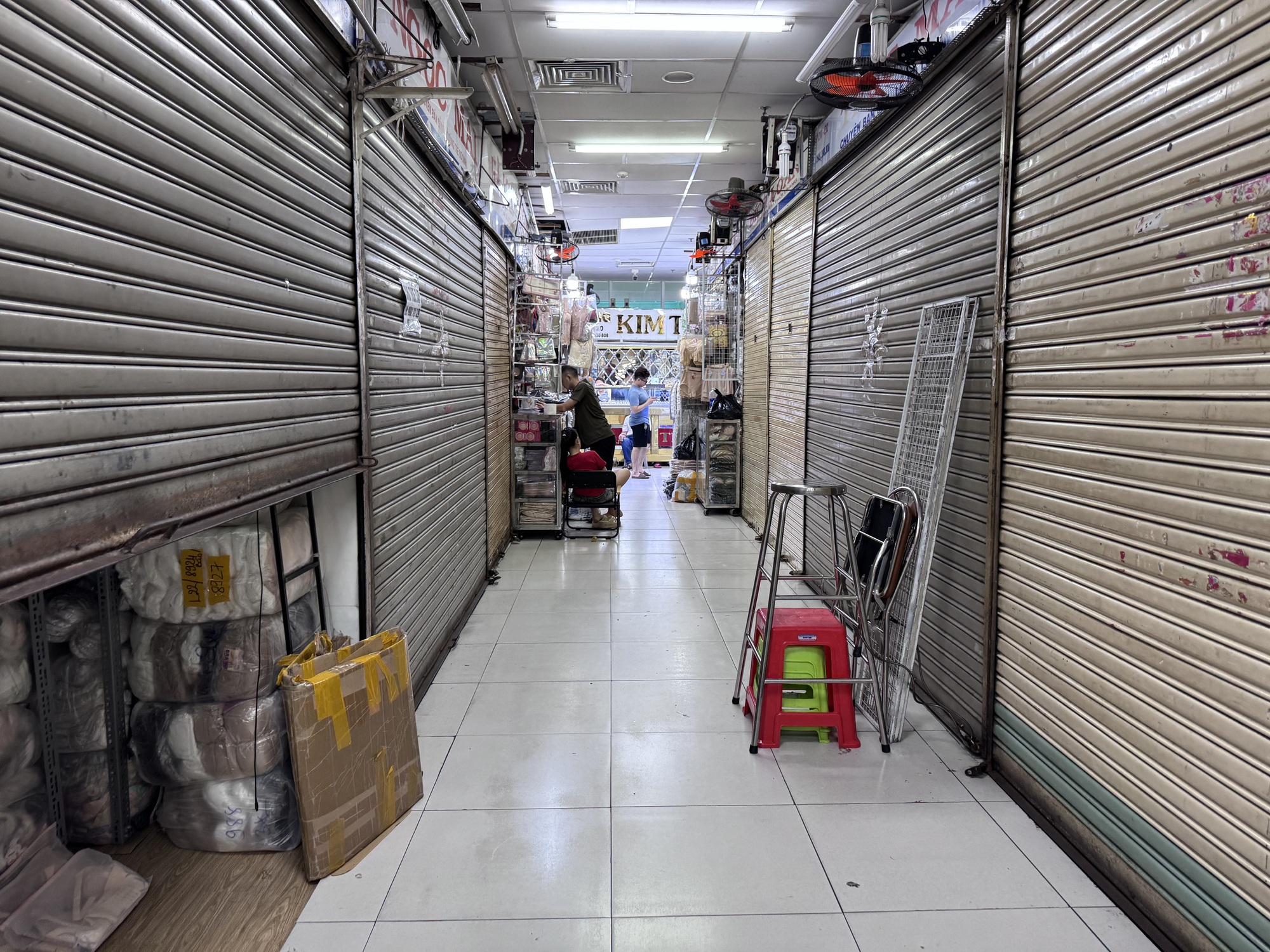
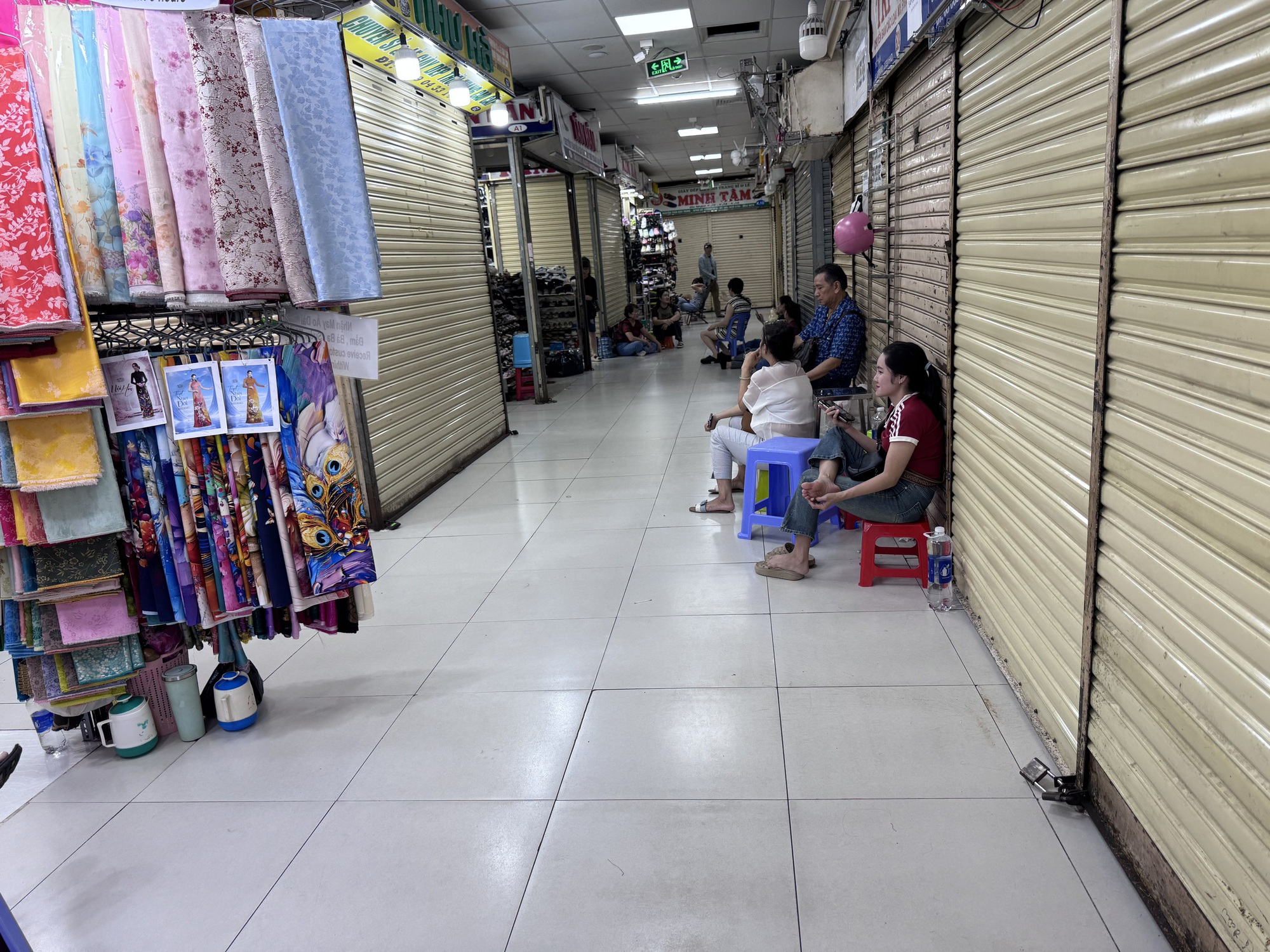
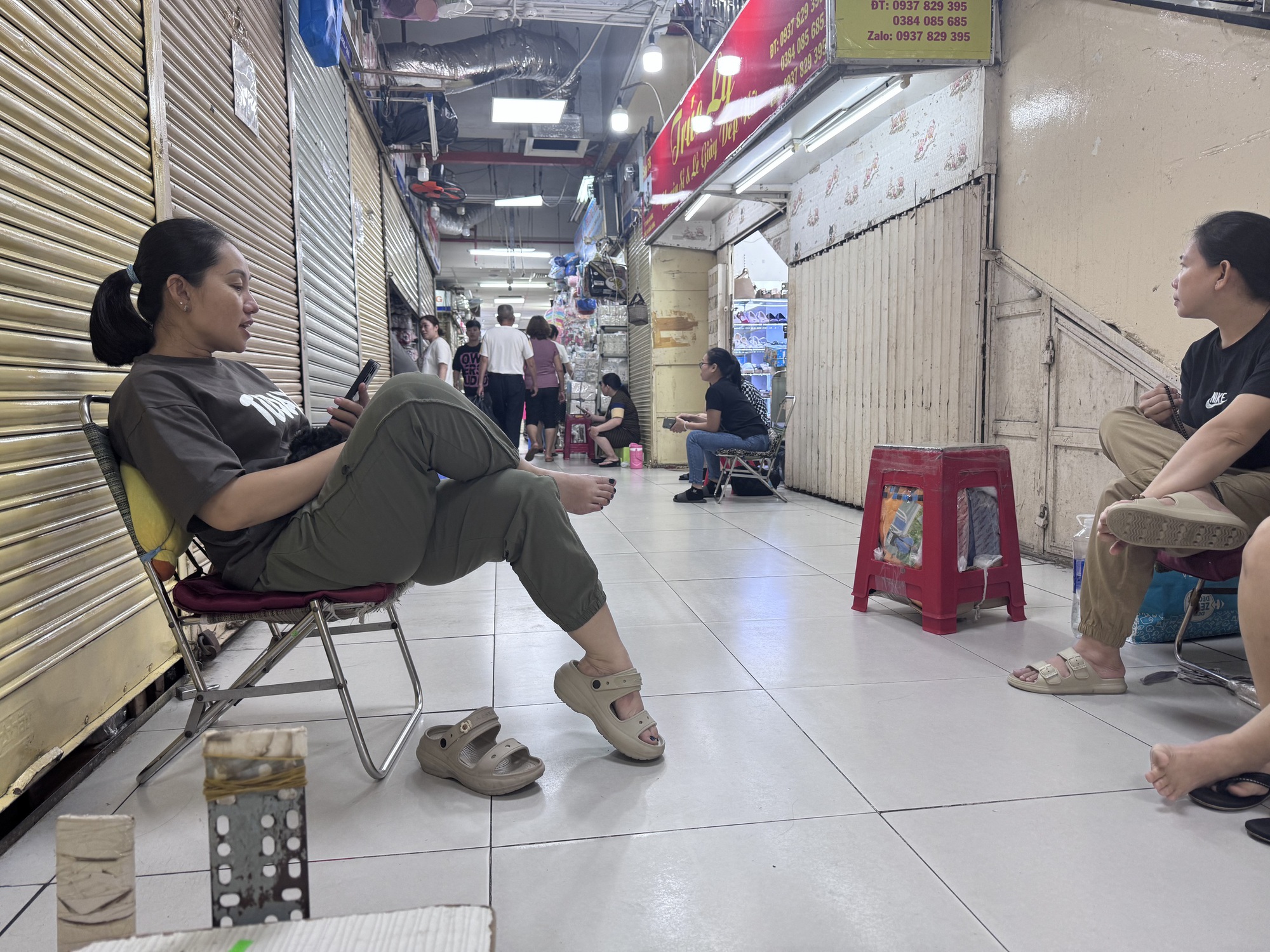
An Dong traders and their relatives sitting outside their closed stalls
According to the traders, the main reason for the sudden closures was the rumor that market regulators would be conducting surprise inspections that day. As most of the goods sold in the market are imported from China without proper documentation, traders feared being caught in the crackdown.
“If we get inspected, we’re done for,” shared a concerned trader.
A similar situation unfolded at Saigon Square Trading Center (District 1). Dozens of stalls were closed or covered with tarps. People were strategically positioned inside and outside the center to raise the alarm if inspectors were spotted. Some stalls were slightly ajar, ready to be shut at a moment’s notice.
Tarps were hung, lookouts were assigned, and opening hours were adjusted to mostly evenings or after business hours to reduce risk. High-risk items like eyeglasses, watches, and handbags were sold with heightened vigilance.
By 10:30 am, as no inspectors had appeared, a few stalls at An Dong cautiously resumed business. However, most continued to observe and hold off on regular trading.
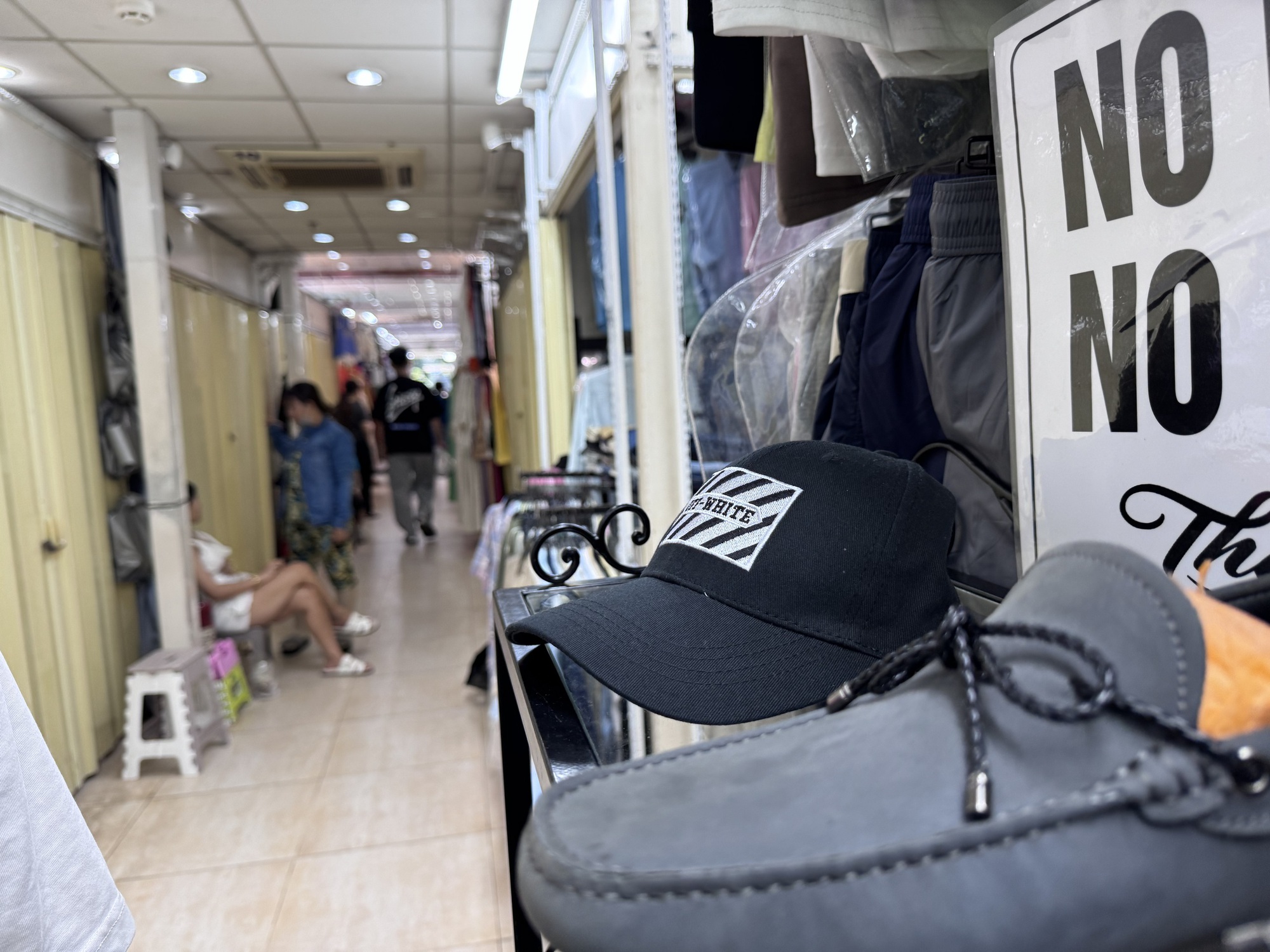
Numerous closed stalls at Saigon Square Trading Center
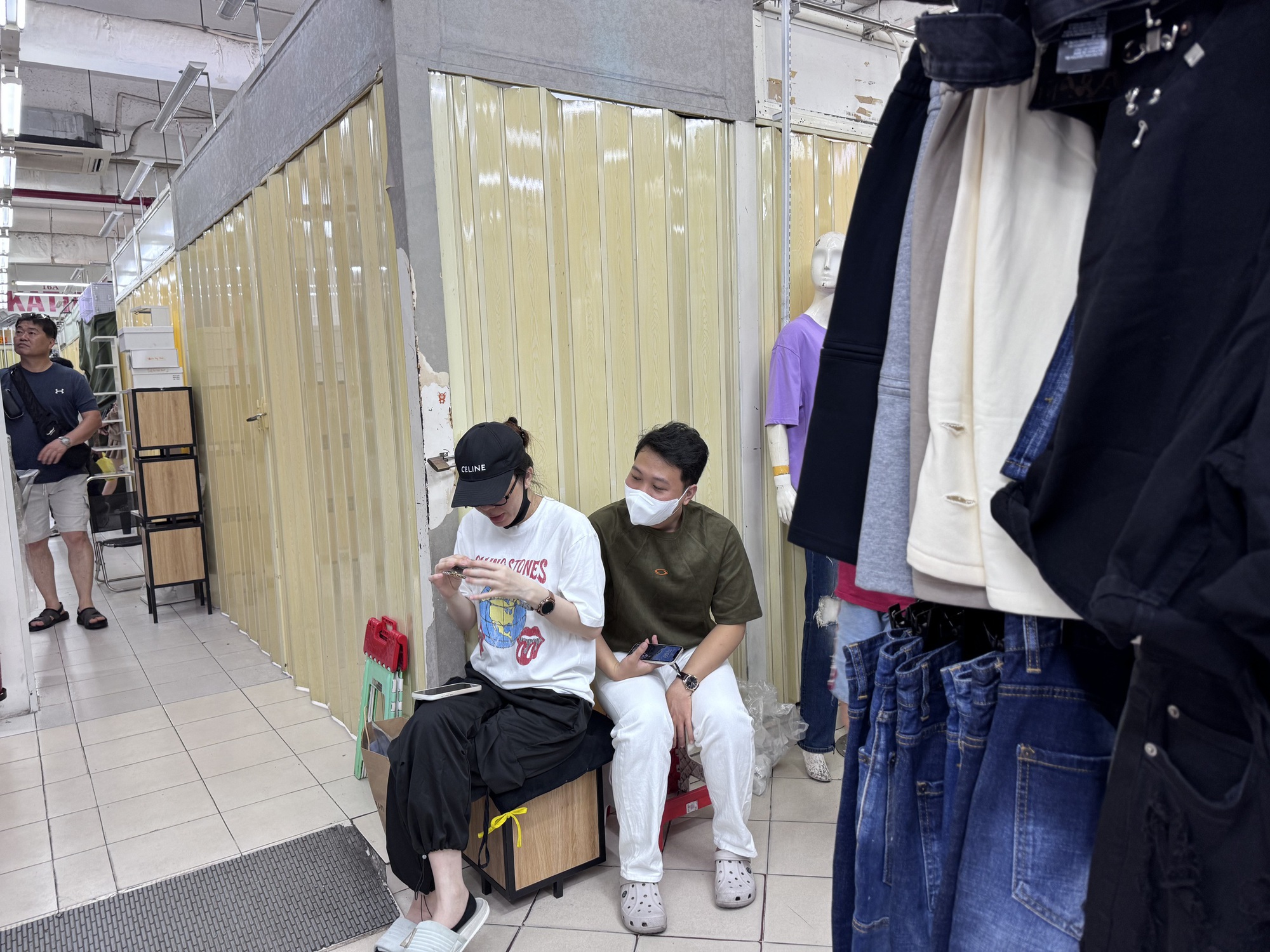
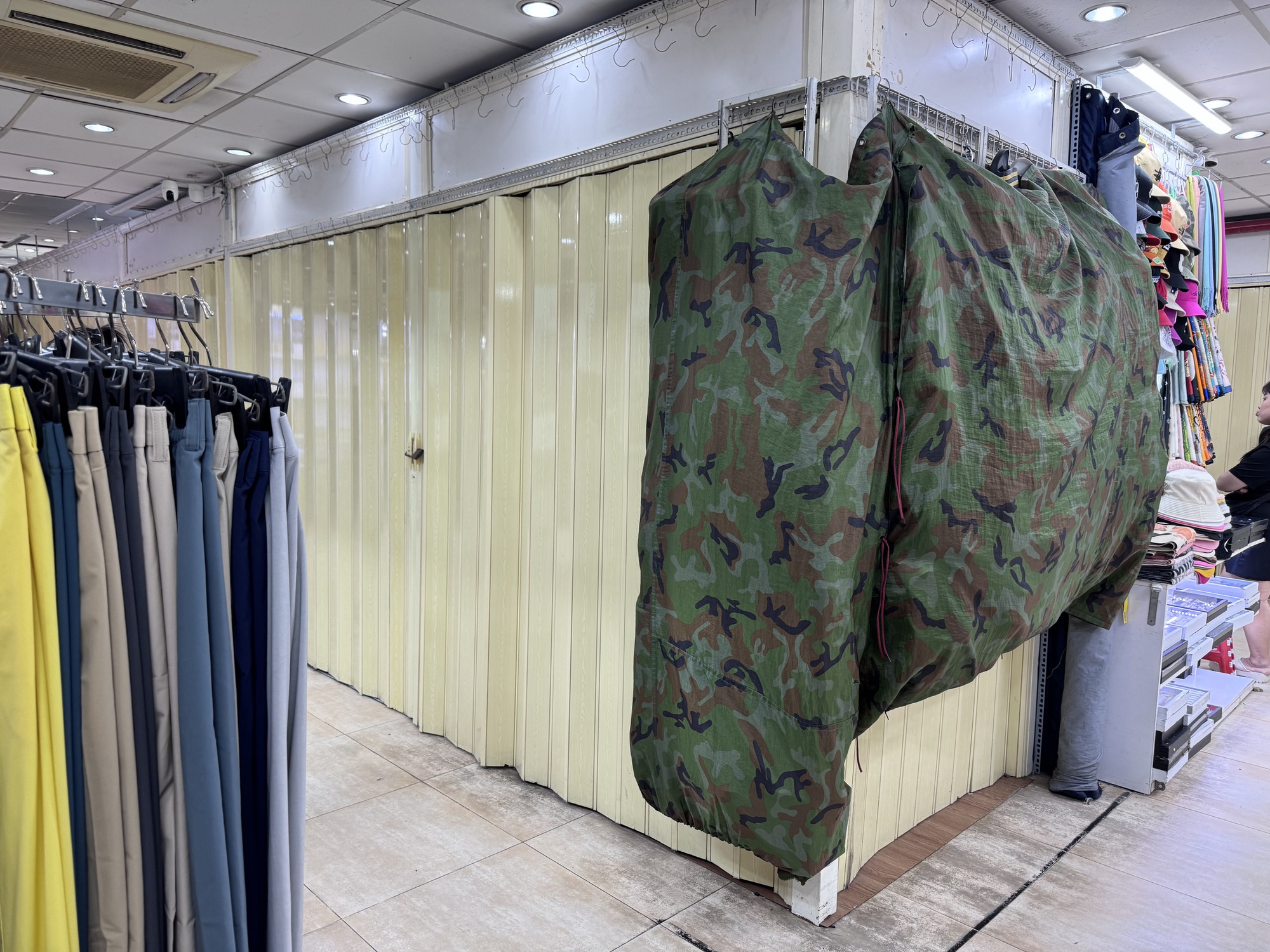
Tarps ready to be used to quickly cover stalls during inspections
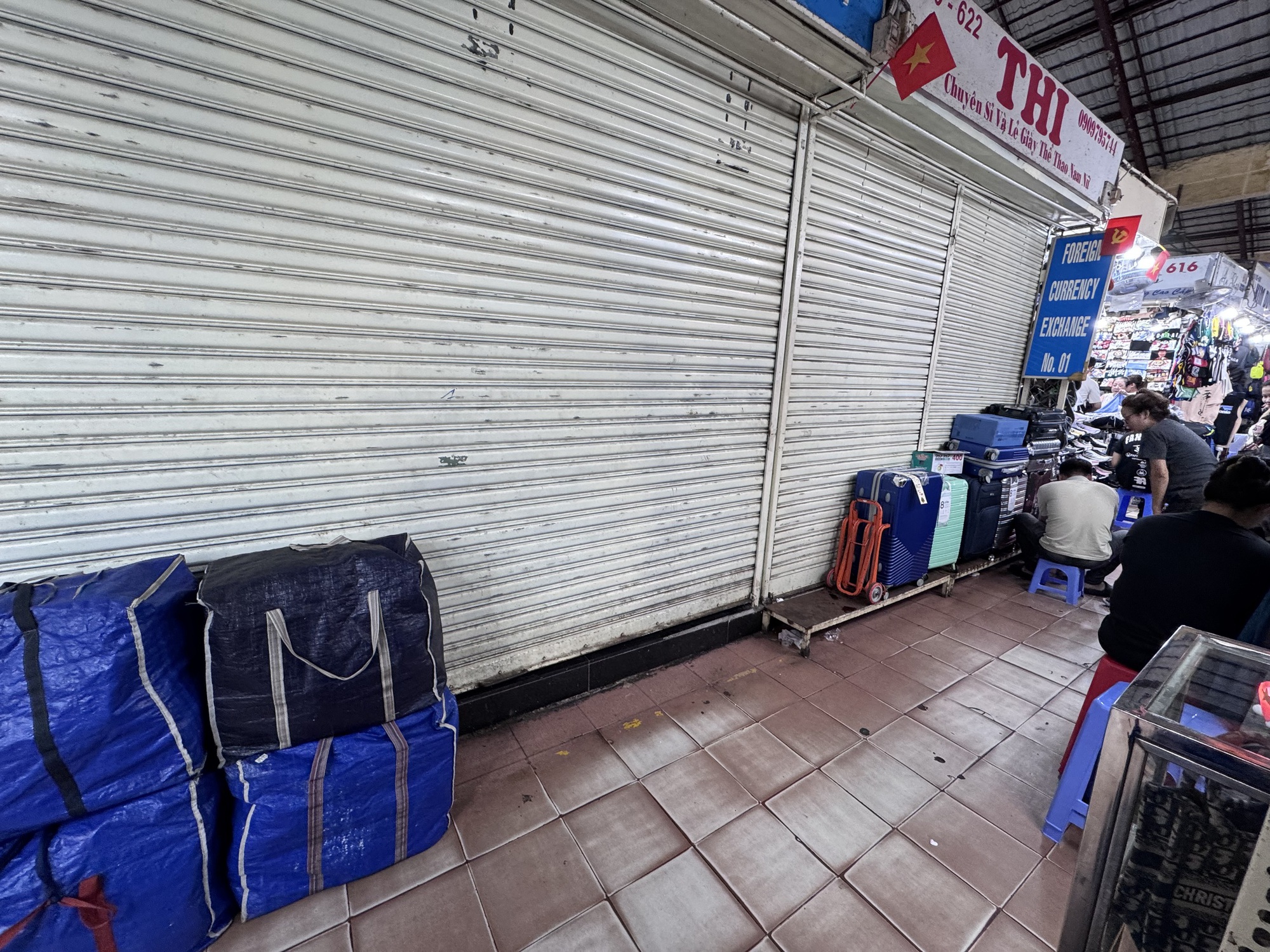
Only a few stalls closed at Ben Thanh Market
Traders adopt a strategy of closing stalls to avoid inspections
Meanwhile, at Ben Thanh Market (District 1), the situation was more stable. Most stalls remained open, with only a few closed for personal reasons.
Mr. Ngo Van Ha, Head of Ben Thanh Market Management, acknowledged that some traders had previously sold counterfeit goods, but due to frequent inspections, most have now shifted to selling genuine products or refrained from openly displaying counterfeits. According to Mr. Ha, while many businesses have reported decreased revenue due to a lack of goods, the Management remains steadfast in requiring traders to sell only authentic, properly sourced products.
Mr. Nguyen Thanh Chau, Head of Thai Binh Market Management (District 1), stated that their team regularly monitors trading activities but has not detected any incidents related to counterfeit goods.
While the strategy of “closing stalls to avoid inspections” is not new, it has become more prevalent as authorities tighten their control over undocumented goods, especially in markets known for smuggled and counterfeit products like Saigon Square.
According to the Ho Chi Minh City Market Management, regulating trading centers like Saigon Square is challenging. The landlords only lease the premises and are not responsible for the origin of the goods, limiting the effectiveness of controls. Nonetheless, the authorities are committed to continuing their inspections and enforcement, despite the persistent tactic of stall closures and tarps.
Clearing the Market of Drugs and Supplements: A Wave of Voluntary Recalls
In recent weeks, dozens of businesses have voluntarily recalled their medicines, health supplements, and cosmetics. This could be a demonstration of their social responsibility and ethical business practices. However, amidst the ongoing crackdown on counterfeit and substandard goods, it also raises questions about whether some companies are simply attempting to avoid regulatory scrutiny or potential penalties for non-compliance.
The City of Ho Chi Minh Scrambles to Compile a ‘Hotspot’ List of Counterfeit and Smuggling Trade for Swift Inspection and Action
The Chairman of the Ho Chi Minh City People’s Committee has directed the Department of Industry and Trade to urgently inspect and compile a list of hotspots requiring heightened attention in the fight against smuggling, commercial fraud, and counterfeit goods. The aim is to enforce regulations and stamp out these illicit activities.
Counterfeiting in the Digital Age: Time to Take Action Against Online Marketplaces
“It is imperative to strengthen the penalties and impose criminal liability on both the manufacturers and the e-commerce platforms themselves if they are found to be in breach of regulations. A stringent enforcement approach is necessary to deter future violations and ensure a safe and trustworthy digital marketplace for all stakeholders involved.”
Ho Chi Minh City: Crackdown on Counterfeit Drugs and Cosmetics, Multiple Facilities Penalized and Licenses Revoked.
From May 15th onwards, the inspection team has taken action against 44 out of 111 establishments (cosmetics, pharmaceuticals, medical equipment, etc.), with a total fine of over VND 2.2 billion.

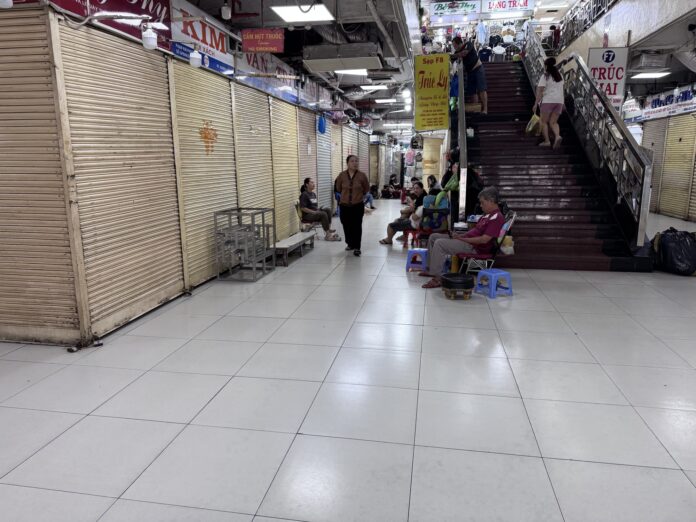
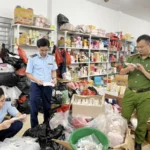
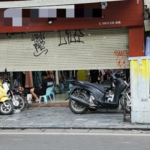


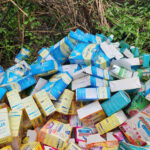














![[On Seat 14] Why Do Vietnamese Prefer Buying New Ranger and Triton?](https://xe.today/wp-content/uploads/2024/09/v-quote-te-5-100x70.jpg)